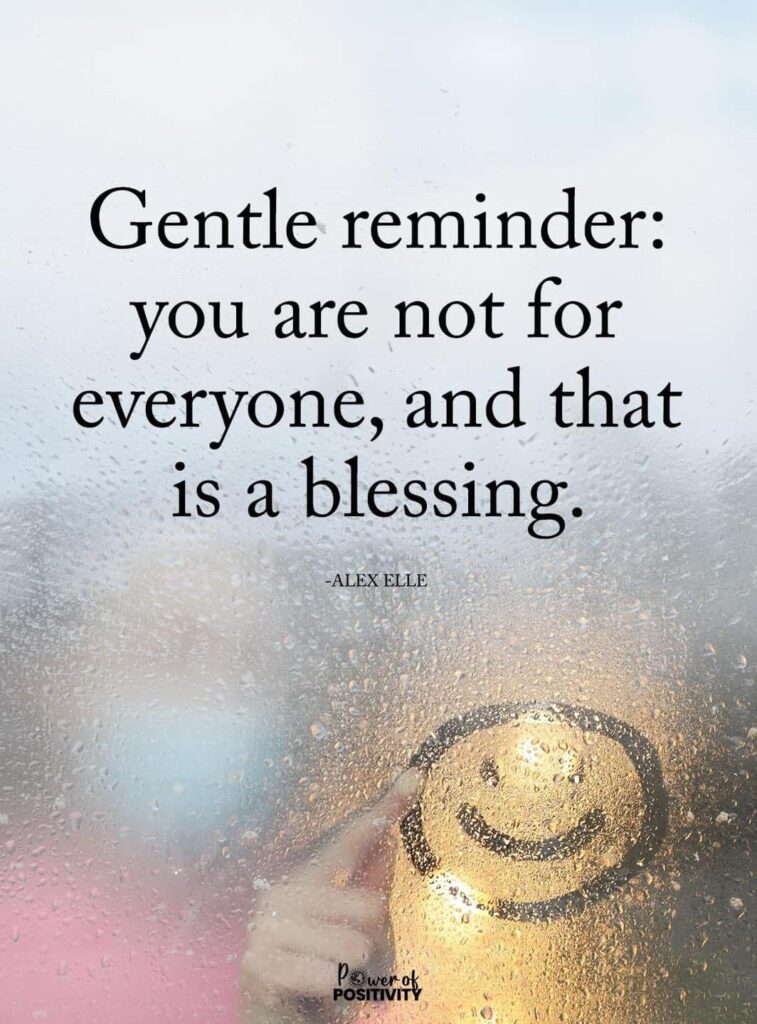Have you ever felt like painful breakups leave a part of your heart shattered beyond repair? Love has a way of leaving marks that don’t fade easily, especially when relationships end in ways that cut deep. It’s not just about the sadness of losing someone—it’s the scars left behind that can make trusting again feel impossible.
Painful breakups don’t just hurt in the moment. They can change how you see love, how you let others in, and even how you protect yourself from getting hurt again. Maybe you’ve been through betrayal, control, or the kind of silence that leaves more questions than answers. These experiences stay with you, shaping how you approach future relationships.
But understanding why these breakups affect you so deeply can be the key to moving forward. The fear of going through it all again is real, but healing and finding love again is possible. What if the pain you’ve felt could actually teach you something about yourself—and about the kind of love you deserve?
Breakups might be painful, but they don’t have to define your future. The more you understand the experiences that hurt you, the more prepared you’ll be to let love back in when the time feels right.
The Core of Painful Breakups
Painful breakups can leave a lasting impact that goes far beyond the end of a relationship. They often strike at the foundation of who you are, shaking your sense of trust, self-esteem, and emotional stability. When someone you cared about lets you down or walks away, it can feel like the ground beneath you has shifted, making it harder to trust again.
Trust is one of the first things to break when a relationship ends badly. Whether it’s caused by lies, betrayal, or unmet expectations, losing faith in someone can create walls that feel impossible to bring down. You might find yourself questioning the motives of anyone who tries to get close, even when they’ve done nothing to earn your suspicion.
Breakups can also take a toll on how you see yourself. Feeling rejected or unworthy can make you doubt your value, leading to insecurities that follow you into future relationships. Those doubts don’t just affect how you feel about yourself—they influence how you let others treat you, too.
Emotionally, the end of a relationship can drain you. The weight of heartbreak makes people hesitant about opening up again. It’s natural to want to avoid the pain that comes with loss, but carrying the hurt from one chapter into the next can hold you back.
Understanding how painful breakups affect you is the first step to moving forward. It’s not easy, but recognizing the impact helps you rebuild trust, regain confidence, and open your heart to love again—when you’re ready.
The 12 Breakups That Leave Deep Scars
Every painful breakup leaves a unique mark, shaping how we approach love and connection in the future.
1. Infidelity and the Trust It Shatters
Cheating doesn’t just break hearts—it breaks the foundation of trust that relationships are built on. When someone steps outside the commitment, it sends a message that their needs were more important than the promises you made together.
The heartbreak caused by infidelity doesn’t stay in the past. It lingers, making you question everyone’s motives, even when they’ve done nothing wrong. Future relationships often suffer because rebuilding trust takes time and patience. Every missed call or unexplained delay might spark doubts, creating unnecessary tension. Cheating isn’t just a betrayal; it’s a wound that makes trusting again feel like a risk too big to take.
2. The Pain of Emotional Manipulation
Emotional manipulation happens when someone twists your feelings or decisions to suit their needs. This type of control isn’t always obvious—it’s subtle and insidious, leaving you questioning yourself instead of them.
Victims of emotional manipulation often struggle to trust their instincts in future relationships. They might second-guess their choices, fearing they’ll be taken advantage of again. The scars from this kind of relationship run deep, making it hard to open up and let someone in fully. Emotional manipulation doesn’t just hurt—it leaves you feeling trapped, even long after the relationship ends.
3. Toxic Control That Crushes Independence
A controlling partner often disguises their behavior as care or concern, but over time, it strips away your sense of self. They decide what you wear, who you talk to, and where you go, leaving little room for your individuality.
When you’ve been in a controlling relationship, you may carry the fear of losing yourself into future connections. The idea of compromising, even in healthy ways, feels like giving up your freedom all over again. It takes time to rebuild the confidence to stand firm and value your independence, even while being in love.
4. The Aftermath of Gaslighting
Gaslighting is one of the most damaging forms of manipulation. It’s when someone makes you doubt your reality, twisting facts until you start to question your own memory or judgment.
The mental toll of gaslighting can leave you hesitant to trust not just others, but even yourself. You might find it hard to believe your feelings or perceptions, making future relationships feel shaky from the start. Gaslighting doesn’t just end when the relationship does—it takes a long time to undo the self-doubt it creates.
5. Physical Abuse and the Fear It Leaves Behind
Physical abuse is a trauma that leaves scars both inside and out. The physical pain heals, but the fear and emotional damage linger, often for years.
Being in an abusive relationship can make you fearful of vulnerability. Letting someone get close feels dangerous because you don’t know if they’ll hurt you too. It’s not just about protecting yourself physically—it’s about guarding your heart and mind from more pain. Overcoming this fear takes strength, support, and time.
6. Silent Relationships: The Damage of Poor Communication
When communication breaks down, misunderstandings and resentment build up. Silence in a relationship often feels lonelier than being alone.
Poor communication leaves you feeling unheard and unimportant, making it difficult to open up in future relationships. You might worry that speaking your mind will lead to conflict, or worse, that it will be ignored entirely. Over time, these fears can make you hesitant to connect on a deeper level, creating distance where there could be closeness.
7. Jealousy and the Insecurity It Fuels
Jealousy might start small, but it grows quickly, creating a toxic environment in any relationship. Whether it stems from personal insecurities or past betrayals, jealousy can suffocate love.
Being in a relationship where jealousy ruled can leave you feeling anxious about emotional safety in the future. You might constantly wonder if you’re enough or worry about being accused of things you haven’t done. It’s hard to move forward when you’re carrying the weight of someone else’s insecurities.
8. Financial Conflicts That Break Bonds
Money problems can create cracks in even the strongest relationships. Whether it’s overspending, debt, or differing financial priorities, these issues often lead to arguments and stress.
If you’ve been through a relationship where finances were a constant struggle, you may approach future partnerships with caution. You might be overly frugal or avoid merging finances altogether, fearing a repeat of the tension you once endured. Money doesn’t buy love, but financial stability sure helps keep it steady.
9. The Sting of Broken Promises
When someone breaks a promise, it’s more than just disappointing—it feels like they’ve betrayed your trust and your vision for the future.
Unfulfilled promises can make you wary of believing in forever. You may find it hard to accept assurances from a new partner, fearing they’ll let you down too. This hesitation can create distance in relationships, even when your new partner has the best intentions.

10. Family Interference That Ends Relationships
Toxic family dynamics, especially with in-laws, can create stress that destroys even the strongest bonds. When families meddle in decisions or sow discord, the pressure becomes too much to handle.
If you’ve been in a relationship where family interference was constant, you may fear the same happening again. The idea of dealing with overbearing parents or meddling siblings can make you hesitant to commit. Healthy boundaries are essential, but the scars of past interference can make setting them feel impossible.
11. Unrealistic Expectations That Cause Cracks
When one partner expects too much, it puts unnecessary strain on the relationship. Unrealistic standards can make the other person feel like they’re constantly falling short, no matter how hard they try.
If you’ve been in a relationship where you were held to impossible standards, you might hesitate to try again. The fear of never being enough or failing to meet someone’s expectations can make love feel more like a challenge than a joy.
12. The Void Left by an Unfaithful Ending
Some relationships don’t end with closure—they just end, leaving behind a void of unanswered questions. When someone walks away without explanation, it can feel like an emotional free-fall.
The pain of an abrupt breakup lingers, making it hard to trust the stability of any relationship. You might constantly worry about the same thing happening again, even when there’s no sign of trouble. These unresolved feelings can make moving forward feel like an uphill battle.
Moving Forward After Painful Breakups
Healing from painful breakups isn’t easy, but it’s not impossible. It starts with allowing yourself to feel the emotions that come with heartbreak—whether it’s sadness, anger, or confusion. Pushing those feelings aside might seem easier, but processing them is what helps you move forward.
Self-reflection is a powerful tool. Taking time to think about what happened, how it affected you, and what you’ve learned can provide clarity. It’s not about blaming yourself or your ex—it’s about understanding the patterns and finding ways to grow. Journaling, meditating, or simply talking things out with a trusted friend can help you gain perspective.
Therapy is another important step for many people. A counselor or therapist can provide guidance and tools to rebuild trust and confidence. They can also help you work through the fears or doubts that might be holding you back from future relationships.
Most importantly, focus on self-love before you even think about dating again. Learn to appreciate your own company, celebrate your strengths, and set boundaries that protect your well-being. When you feel whole on your own, you’re more likely to attract a healthy, fulfilling relationship.
Moving forward doesn’t mean forgetting the past—it means learning from it and using those lessons to create a better future. With patience and care, you can heal and open your heart again when the time is right. Painful breakups might leave scars, but they can also teach you how strong you really are.
Final Thoughts on Healing and Finding Love Again
Painful breakups can leave lasting marks, but they don’t have to define what comes next. Each relationship, even the ones that hurt the most, teaches you something about yourself and what you want in love. Those lessons, while hard-earned, can guide you toward something better in the future.
Healing takes time, and there’s no rush. It’s okay to step back, focus on yourself, and rebuild at your own pace. Patience is key—not just with others, but with yourself too. Allow space to grow, to reflect, and to figure out what truly makes you happy.
Staying open to love doesn’t mean forgetting the past. It means believing that, despite the hurt, something good is still possible. The right relationship will feel safe, supportive, and genuine. When you’re ready, you’ll find love again—not because you need it to heal, but because you’re ready to share your life with someone who truly values you.














